From Organ Designers To Telesurgery VR Planners: Healthcare Jobs In 2040

What are you going to do 10-20 years from now? Chances are that whatever your current job description is, it will be drastically different in two decades. While it is true for almost every profession, the incoming change is going to dramatically redesign the landscape of healthcare jobs.
Looking at the healthcare horizon, we are in the middle of an industrial revolution. And, as with all the previous industrial revolutions, a fair amount of current tasks will become obsolete and will be taken over by AI, by robots, by sensors or by cloud processes. Meanwhile, a cornucopia of new jobs will be born. Some of these we can predict now, but surely, there are many we don’t even know will exist in 20 years.
So, instead of looking at the upcoming revolution as the end of something, a grim prospect of machines taking people’s jobs, we should focus on it as an opportunity, and keep in mind that those who adapt will be the winners of the change.
And now let’s take a look at some of the future healthcare jobs I believe will come. If they sound fun, keep an eye on the future training possibilities, and become a pioneer yourself!
1. Robot companion technician
This may not sound like a thing now, but trust me, it will become a thing very soon. As robotic companions are getting more and more popular, there will be an increasing demand for professionals who can fix our little buddy when it suddenly becomes unresponsive.
Somewhere in the 2030s. Lucy decided to buy a robot companion for his dad who lives alone in a big house in the suburbs of Nashville to help with the household, to make sure that he takes his medication or calls an ambulance whenever it is necessary or just to keep him company. The robot, Ted, looks almost like a 60-year-old man with wrinkles on his face and grey hair. He was designed by a robot companion engineer, who contacted the family to let them describe what kind of robot they wanted and turned their wishes into reality. He could have shaped the robot as a dog or a cat as well.
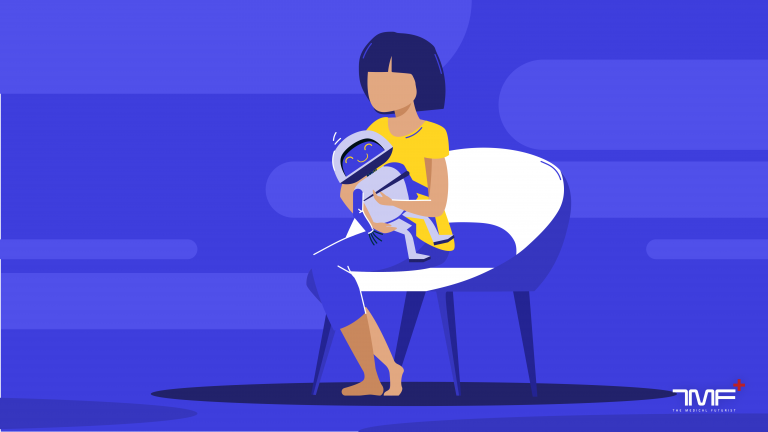
When the robot arrived at their doorsteps, the family followed the instructions to put Ted in operation. Although the process took a while, it was not as difficult as assembling IKEA furniture, still, something went wrong. So they called the company, which sent a robot companion technician specialized in this particular type of robot companion. The technician fixed a small electric failure, and told them to call him anytime they experience a problem. He reassured them that only a couple of robot companions are assigned to him, which he knows thoroughly, and he will be available 24/7.
2. Deep learning expert training algorithms
Narrow AI is already a reality. Companies are already looking for highly skilled data scientists and deep learning experts in every field. AI-based algorithms will not only assist medical decisions but also dominate how healthcare is organized and how health insurance is determined. We will need experts who can help algorithms learn about a certain topic by themselves making them smarter with every use.
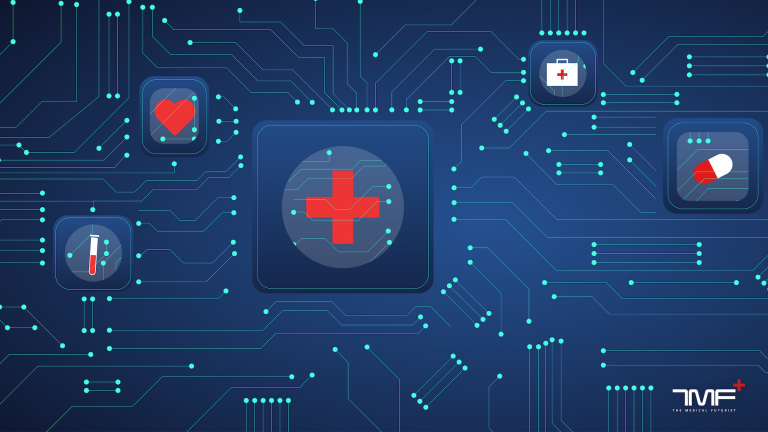
How is it done? Deep learning algorithms are basically artificial neural networks inspired by the human understanding of how our brain works, with a gazillion different interconnections between the neurons. However, these artificial neural networks have discrete layers, connections, and directions of data propagation. When making a decision, – e.g. about whether an MRI image shows a tumor, data runs through various layers of neurons.
Before it can get things right, these artificial neural networks need lots of training. It needs to see hundreds of thousands, even millions of images so that experts can tune the weightings of the neuron inputs so precisely that it gets the answer right practically every time. No matter whether it is a human face on Facebook or malignant tissue.
3. Generative AI chatbot designer
Somewhere in the second half of the 2020s. Christoph travelled to Munich by his driverless car to a business meeting when a huge migraine ruined his day. He turned his medical AI assistant, JediMedi on, and after a couple of simple questions, he knew where to go for the right medicine and what is the most possible explanation for his symptoms.
As AI chatbots will prevail in every field, so will professional chatbot designers. And the future is already here. DoNotPay, the world’s first robot lawyer, has been constantly approved since 2016 when a 19-year-old British programmer launched a bot that was successfully helping people appeal their parking tickets. By now, the venture offers an impressively wide palette of services on a bimonthly subscription basis.
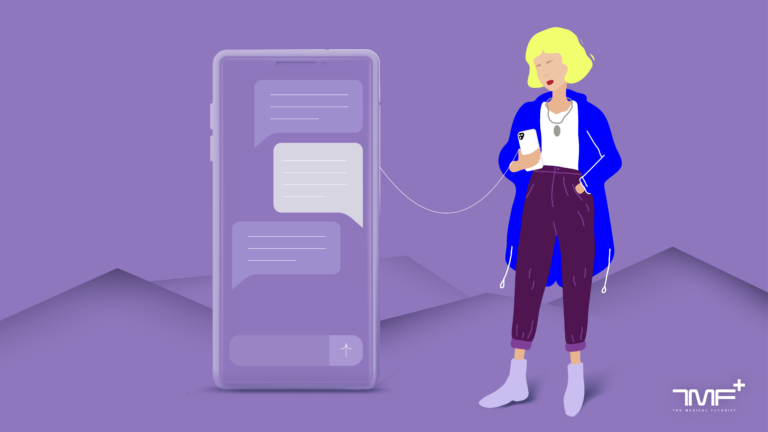
Having GPT-4 or another similarly developed large language model in a patient- or consumer-facing application is not a hazy vision from the distant future. We could identify more than a dozen healthcare companies that have already integrated ChatGPT into their offering almost a year ago. This number must be in the thousands by now. GPT-4 is not the only impressive model anymore, we are hearing more and more about Google’s Med-PaLM 2, which was specifically trained for medical purposes. Besides this “professional tool”, Google also released a “general” AI chatbot, Gemini recently, which has replaced Bard and is significantly more capable than its predecessor.
4. Lifestyle strategist
I know, it sounds bogus. But trust me, it is not! The number of wearable devices with various health and fitness features grows at an impressive speed, it was reported that in the third quarter of 2023 alone more than 140 million devices have shipped. As technology progresses and new devices and new features hit the market, more healthcare providers become comfortable with using them. And we haven’t even mentioned digital tattoos!
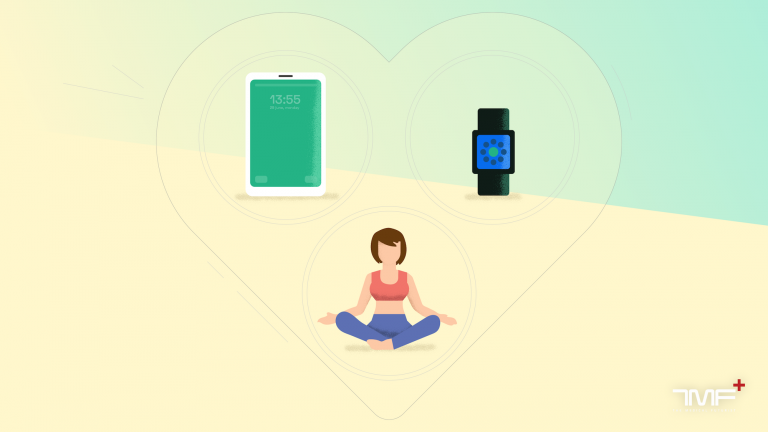
So how can we choose the right wearables for a lifestyle change? And how to create an actual strategy for living a more healthy life with the help of digital technology?
Soon there will be healthy lifestyle strategists, who will create personalised lifestyle plans for clients, advice on health insurance issues (also connected to health data), or how to choose the best wearables.
5. Bioprinting organ designer
Somewhere in the 2040s. After Leslie suffered an almost fatal car accident, his doctors told him and the family that he urgently needed a new liver. The hospital had to start the process of liver creation and implantation as soon as possible. Leslie agreed and the next day, his bone marrow stem cells were transferred to an organ designer, who 3D bioprinted the new organ within days.
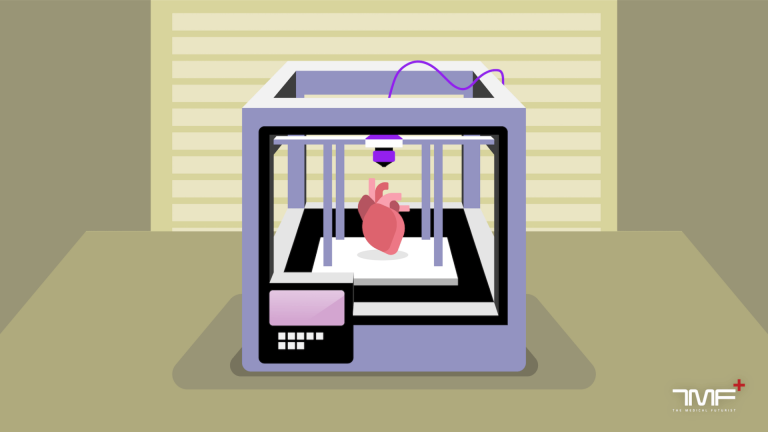
Are we there yet? Organovo announced successfully bioprinted liver tissues already in 2014. A few years later, the company stated that they were beginning to work on 3D-printed liver tissue to be used in transplants. Still, we can’t bioprint functioning organs, and we can even feel that 3D bioprinting is overhyped. However, we constantly see small news items that are the bricks forming the future house of 3D bioprinting living tissues as part of everyday medicine.
There are so many patients waiting for organ transplantation that the demand for bioprinted organs, and thus for organ designers is already skyrocketing. Such a career path might be an unambiguous choice for people with a background in molecular biology, 3D printing, and medicine.
6. Healthcare navigator
Do you remember what the biggest challenge for Hugh Laurie as Doctor House was in the famous series for solving medical mysteries? Yes, you are right, to talk to patients and be close to people. He would be very pleased to know that in the future, the work of a specialised diagnostician may not necessitate direct contact with patients, as he can rely on the help of healthcare navigators.
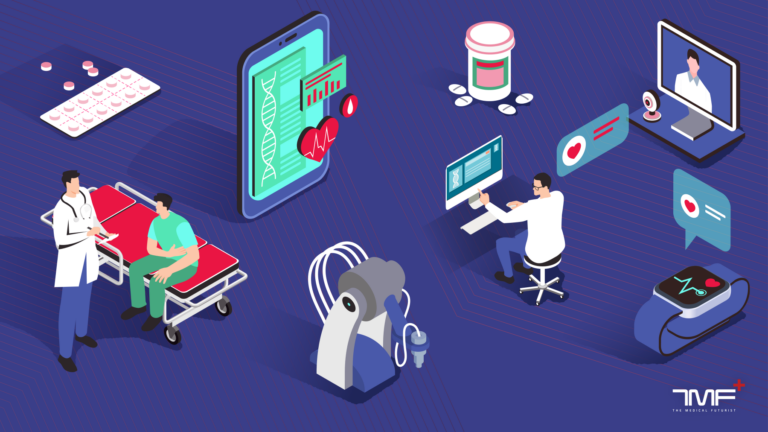
These professionals will be part of the team, and working together with large language models they will guide patients towards finding the optimal solution to their specific health situation or medical problem. The navigator’s job would be to present options, piece together relevant information and forward it to caregivers with the necessary therapeutic recommendations. Is it possible that this process can be covered with an AI-backed application? Well, theoretically yes, but we don’t see this as a realistic scenario for the foreseeable future.
7. Healing gamification specialist
Somewhere in the 2040s. Peter and his family were celebrating his wife’s 50th birthday when he suddenly felt a twitch in his head and fell unconscious. The ambulance came within minutes, and the medical drones helped transport him very quickly to get adequate care. It turned out he had a stroke and his healing process will take several months. After telling him the diagnosis, his physician consulted a gamification specialist about the next steps.
He wanted him to design a treatment with the help of VR/AR, in which Peter could learn to use his left hand again through a strategic computer game. By playing it, he has to climb through walls and collect coins to reach the innermost chamber of a medieval castle. In the next few days, the gamification specialist worked on streamlining an existing game to Peter’s needs. The game got ready for the day when the physician told Peter to start the rehabilitation process.
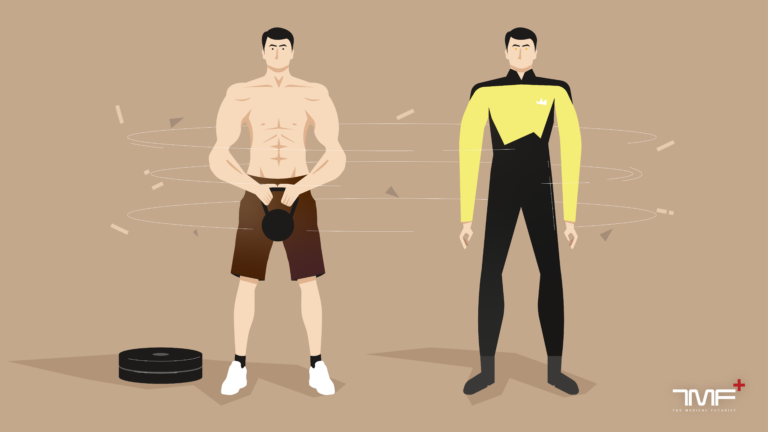
There are millions of ways in which gamification could make healthcare more fun and help people at the same time. It has already started. Just think about Plant Nanny, the app that helps you drink the right amount of water a day by allowing you to bring up a little plant! Or remember all the fitness wearable challenges out there. Such as the ones offered by Fitbit, which urges you to stay fit by competing with your peers. But the future holds more complex issues in gamification. Coupled with the possibilities in virtual reality or augmented reality, gamification specialists could plan whole personalised games to follow their treatment plan – such as the above.
8. Augmented/virtual reality operation planners for surgical interventions
Before complex operations, such as implantations or tumour removals, surgeons have to prepare extensively. 3D-printed organs or AR/VR will be of huge assistance in the future. In this study, the researchers employed the VR prototype for surgical planning using a standard VR setup in two real cases of patients with liver tumors who were scheduled for surgery at a University Hospital for Visceral Surgery. Surgeons used the VR prototype before the surgery to plan the procedure in addition to their regular planning process. They used semi-structured interviews before and after the surgery to explore the benefits and pitfalls of VR surgical planning.
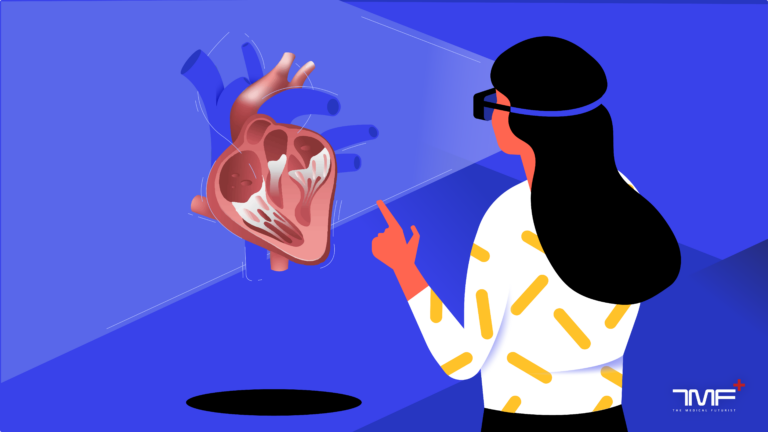
Within 20-30 years, AR/VR operation planners will help surgeons in the preparation for very complex surgical interventions. While the medical professional explains what kind of operation will unfold, the planner visualises the organs and the whole process through AR/VR. Sounds like a wonderful job for medical geeks, doesn’t it?
9. Digital health security analyst
As healthcare increasingly relies on digital technologies, the need for security in protecting patient data and ensuring the integrity of health devices and platforms will grow. Digital health security analysts will specialise in safeguarding medical devices, health apps, and patient data from cyber threats, ensuring compliance with privacy laws and developing protocols to respond to breaches effectively.
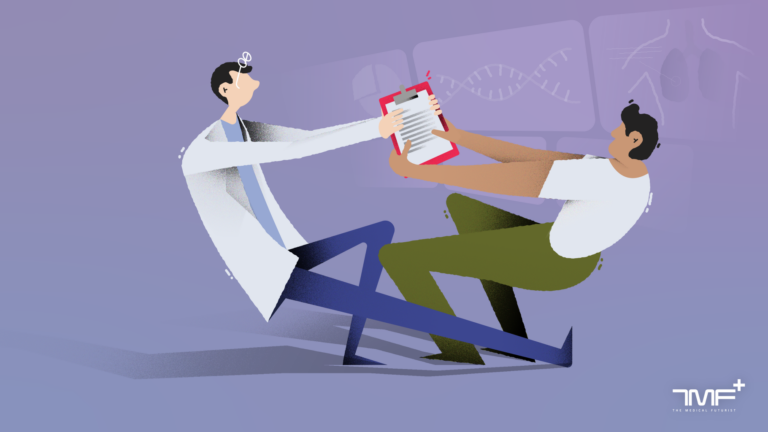
This position requires a blend of technical expertise, a deep understanding of healthcare regulations, and the ability to stay ahead of emerging digital threats to ensure patient data privacy and system integrity. The analyst will conduct regular scans and audits to identify weaknesses in digital healthcare systems, networks, applications, and devices, and will play a crucial role in educating healthcare staff on best practices for cybersecurity and data protection.
10. End-of-life therapist
In his thought-provoking critique of society, God Bless You, Mr. Rosewater, Kurt Vonnegut explains that in the future, as all serious diseases have been conquered, death will become voluntary. The government, to encourage volunteers for death, set up a purple-roofed Ethical Suicide Parlor at every major intersection. While it is obviously a satire, it taps into the very question of how we will handle death in the future. And how our attitude toward death will change gradually.
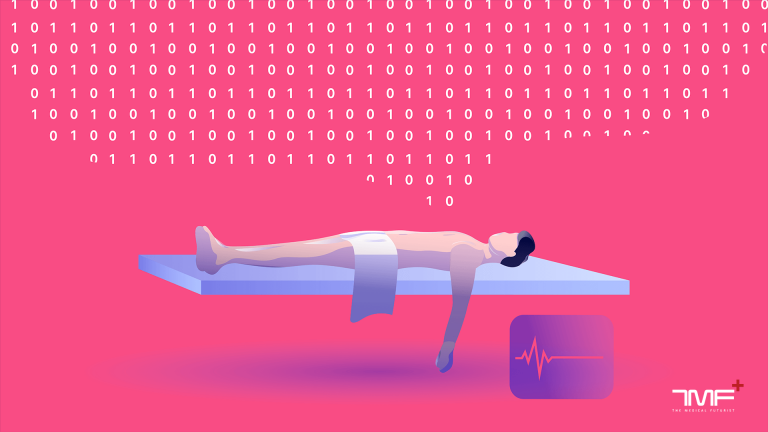
People will live a longer, healthier life. And although it is currently unimaginable, it might become a reality that they will be able to decide about their death. As it is such a huge psychological burden, which we are not able to process, we will need specialists in death. These psychologists could help prepare for death; help those who decide when they want to end their life and also those who decide they choose to live on synthetically by e.g. uploading their consciousness to a computer.
|
At The Medical Futurist, we are building a community for making a bold vision about the future of healthcare reality today. If you’d like to support this mission, we invite you to join The Medical Futurist Patreon Community. A community of empowered patients, future-oriented healthcare professionals, concerned health policymakers, sensible health tech developers, and enthusiastic medical students. If there were ever a time to join us, it is now. Every contribution, however big or small, powers our research and sustains our future. Click here to support The Medical Futurist from as little as $3 – it only takes a minute. Thank you. |
The post From Organ Designers To Telesurgery VR Planners: Healthcare Jobs In 2040 appeared first on The Medical Futurist.


